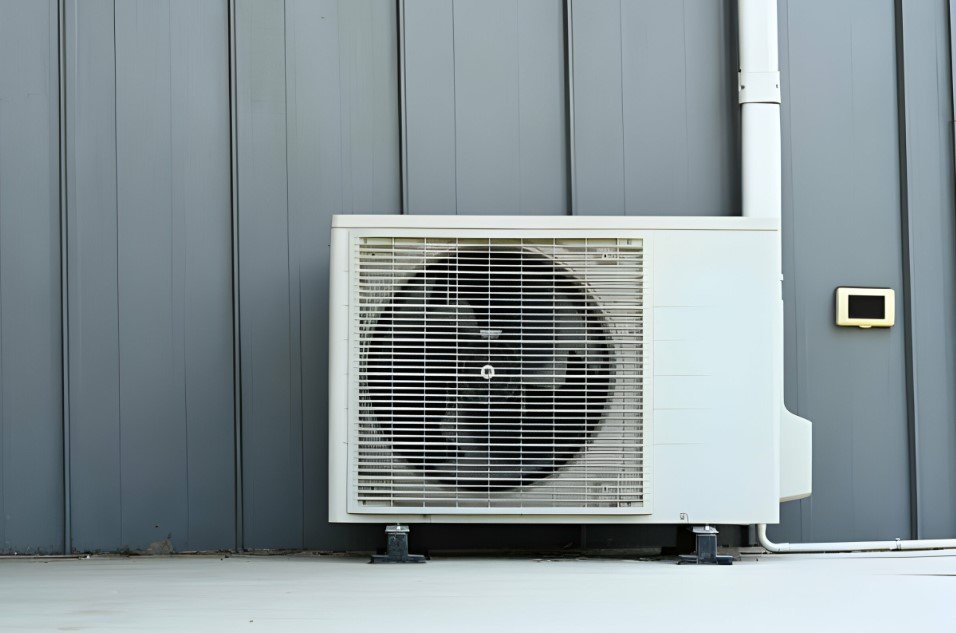Home Improvement
Heat Pump vs Air Conditioning: Which is More Efficient?

Heat pumps and air conditioners offer effective home cooling solutions; however, when it comes to comparing energy efficiency, heat pumps outshine air conditioners.
Air conditioning systems use refrigeration cycles to efficiently cool your home by absorbing heat from inside and discharging it outside, leading to higher SEER ratings. On the other hand, heat pumps feature a reversing valve, enabling them to work in reverse during cooler weather.
Are you curious about the efficiency between heat pumps and air conditioning? Go over the pros and cons of heat pumps here to weigh your options.
Energy efficiency
Heat pumps are more energy-efficient than their fuel-based counterparts, such as electric resistance-type heaters or gas or oil furnaces, because they transfer more thermal energy into homes than electricity consumption; this energy comes directly from the air. Their performance can be measured using their seasonal energy efficiency ratio (SEER).
Heat pumps are prone to be more energy-efficient than air conditioners; however, their effectiveness can depend on your local climate. If it frequently drops below freezing, a heat pump will be less effective and additional heating solutions may be needed.
Air conditioners may also be more energy-efficient than resistance-type heating equipment, though they don’t utilize renewable sources and produce more emissions than other cooling gear. A high-efficiency AC can reduce home energy consumption by around 20%, saving homeowners even more on utility costs.
Cost
The cost of heat pumps will depend on where and how they’re installed; however, most homeowners generally don’t need their heat pump year-round, which helps lower overall operating expenses.
Heat pumps offer both heating and cooling solutions in one unit, which may cost more initially but often save homeowners money in energy costs over time. Air conditioners only provide cooling; separate heating solutions must be procured separately.
Heat pumps are perfect for fair climates and can be combined with furnaces to create hybrid systems for winter heating needs. Unfortunately, however, heat pumps don’t perform as effectively in colder environments due to using electricity for heating, which becomes less energy-efficient when temperatures drop, resulting in higher electric bills and increased costs for running them.
When choosing between heat pumps or air conditioners, homeowners should consider their budget, climate, and long-term energy efficiency needs.
Efficiency ratings
Heat pumps offer many benefits when it comes to energy efficiency. Not only can they efficiently cool a room, but they can also provide heating if you opt for a hybrid model. Furthermore, their higher energy ratings than air conditioners mean they could help save you money over time if you live in moderate climates.
However, there may be better choices in cold climates as heat pumps depend on electricity to shuttle heat back and forth between your home’s air and outside air; when temperatures dip below 40 degrees Fahrenheit, this process cannot function as efficiently.
Basic air conditioners tend to be the more affordable solution but cannot match heat pumps’ cooling efficiency; you can improve SEER ratings through regular professional maintenance to make your system perform at its optimal best.
You can still reap the benefits of heat pumps by selecting an ENERGY STAR(r) certified model with at least an 18 SEER rating and an 18 Heating Seasonal Performance Factor rating (HSPF). This allows you to see how efficiently they perform when used as heating devices.
Heat pumps have the potential to lessen energy expenses while simultaneously making a significant, lasting impact on climate change. Heating and cooling account for 60% of total home energy emissions in America, so switching to more energy-efficient options could have an enormously positive effect.
Life expectancy
Heat pumps are different from air conditioners in that they provide heating and cooling functions; most heat pumps use an auxiliary electric furnace for winter heating needs, meaning more energy will be consumed to operate them in winter than in the summer.
Heat pumps typically cost more upfront but typically pay back their cost more quickly over time. It would help if you considered replacing both units at once when purchasing because they may require more frequent replacements due to their longer lifespans than conventional air conditioning systems.
Thus, heat pumps usually have higher running expenses than air conditioners, but energy savings may make up for this extra cost.
-

 Entertainment4 weeks ago
Entertainment4 weeks ago123Movies Alternatives: 13 Best Streaming Sites in 2026
-

 Entertainment1 month ago
Entertainment1 month ago13 Free FMovies Alternatives to Watch Movies Online in 2026
-

 Entertainment1 month ago
Entertainment1 month ago13 Flixtor Alternatives to Stream Free Movies [2026]
-

 Entertainment1 month ago
Entertainment1 month agoGoMovies is Down? Here are the 11 Best Alternatives





